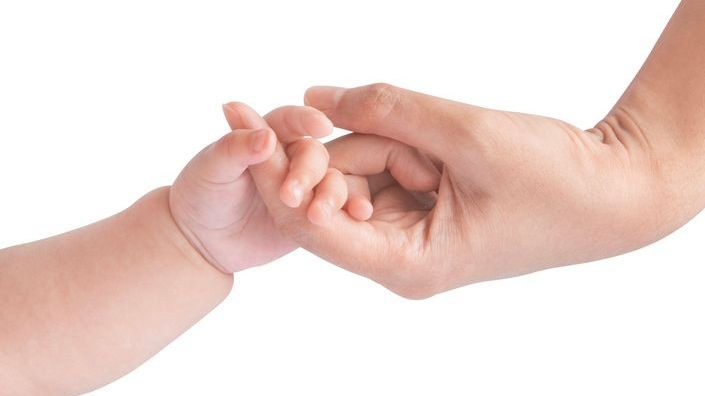
Dealing with Separation Anxiety
Children can – and do – experience fear, worry, and anxiety. However, learning to cope with change at an early age will give them the essential skills they need to adapt when it comes to starting school or entering new social situations. They’ll also learn independence skills that are, again, crucial, for their long-term health and wellbeing.
The best way to approach the transition will differ depending on the age of your child, and whether they’ve already spent time being cared for by others. If you’re unsure of how to help your child settle in, educators at your childcare centre will be happy to offer advice that will suit your child’s unique personality and circumstances. A few things to keep in mind when dealing with separation anxiety:
Ensure you avail of the Orientation sessions at your childcare centre before your child commences. These are a great way to prepare your child and allow them to start building familiarity and trust with their educators and for your child to start getting used to their new environment.
Your child will be looking to you for your response to the new environment. Remain calm if your child is upset & don’t ignore your child’s distress – validate their feelings “it’s ok to feel sad but you’ll be ok” and reassure them you’ll be back later to pick them up.
It is very important to always say “good-bye” to your child when you drop them off to childcare or Kinder as this builds trust, even though it may be tempting to quietly slip out the door. Try and keep the “good-bye” short as long good-byes can make children more upset.
Tips For Easing the Transition to Childcare or Kindergarten
While some children will bounce into childcare or kinder without looking back, other children can be overcome with emotions when it comes to making the transition. Both are perfectly normal reactions – it all depends on the child, their personality, and their experiences so far.
With the help of experienced and caring educators, your child will soon settle into their new routine – many soon grow to love the new challenges, friendships, and independence that childcare and kindergarten provide.
Communicate With Your Child
If your child is old enough to understand, take the time to prepare your child for what to expect. Speak positively about the experience and frame it in a way your child will understand. Keep it positive, and address any concerns your child has directly.
If your child is younger, sharing books or shows that feature a childcare setting can help. You might also give your child a favourite cuddly toy to provide both continuity and comfort while they are away from their home environment.
Talk with Your Childcare Providers Regularly
This will help you understand where any difficulties may lie. There are numerous reasons why a child finds it tough to settle, but keeping in touch with the childcare team will give you more insight on where you can focus as you help your child adjust.
You can also inform the childcare staff about your child’s particular interests. The team can then use these interests to engage your child and give them something they enjoy doing whilst inside the centre – as well as having a way to distract them after your “good-bye”.
This might help your child focus on the positive aspects, and not dwell on all their favourite things that they’ve left behind at home.
Maintain Structure and Routine in Your Day
Comfort and security come from routine. Knowing what comes next removes the element of surprise and helps your child manage their emotions while they’re adjusting. During the adjustment period, some children benefit from carrying their favourite teddy or comforter. This provides them with a sense of security and continuity between home and their new childcare provider. It is also helpful if your days at home follow a similar routine (such as meal times, nap times etc) to the childcare setting, while your child is in this period of transition.
Advice for Parents and Caregivers
Stay positive. While you may also be feeling apprehensive about this new adventure, your child will mirror your emotions. If you seem anxious or worried, they may see this as a worrying development.
You may have to try several tactics while your child transitions into childcare or kinder – keep persevering and stay strong. The transition period is different for each child, but soon the children are eager to come for the day.
It is very important to always say “good-bye” to your child when you drop them off to childcare or kinder as this builds trust, even though it may be tempting to quietly slip out the door. Try and keep the “good-bye” short as long good-byes can make children more upset.
Visit Your Childcare Provider Before Your Child’s First Day
It is strongly recommended that you bring your child in for a visit before their first day. Seeing the room will help combat your child’s fear of the unknown. It may help to settle their anxiety if they can visualise the place you speak of, as you prepare them for the change.
Childcare centres should offer orientation sessions to help your child get acquainted with their new environment. These sessions are usually an hour in duration, and you’ll be required to remain on the premises during these sessions. During these orientation sessions your child will be able to join in activities and meet other children if they wish, but it’s also quite alright if they wish to sit back and watch as they adapt to their new environment. Experience has shown that 2-4 of these orientation sessions is generally sufficient before commencing care.
If you would like to tour the Little Learners Day Care Facilities, you can reach out to us by calling, email, or completing the online form.
We service the following areas:

